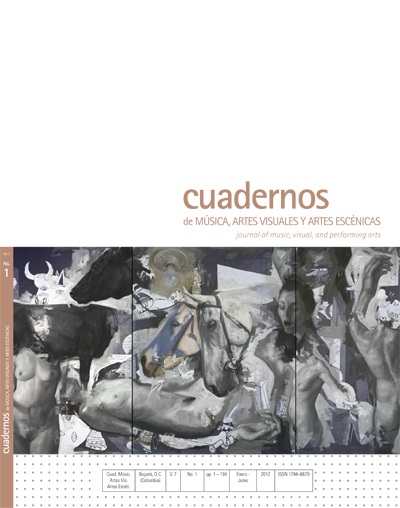Abstract
El estudio reciente de la significación musical ha estado marcado por una brecha aparentemente insuperable entre las disciplinas que se centran en el texto musical como material sonoro (teoría de la música, musicología), aquellas que prefieren enfocarse en el sujeto oyente (ciencias cognitivas, psicología de la música) y aquellas que se centran en los discursos sociales sobre la música (etnomusicología, antropología, sociología). Este artículo plantea que en los avances de la semiótica musical de los últimos veinte años es posible encontrar herramientas que permitan superar esta brecha. Con este fin, tras un recorrido por los conceptos más relevantes de este campo, se identifican tres grandes enfoques sobre la significación musical: el semiótico-hermenéutico, el cognitivo-corporal y el social-político. Esta clasificación sirve como base para presentar unas breves consideraciones metodológicas para abordar el estudio del significado musical desde distintos intereses académicos.This journal is registered under a Creative Commons Attribution 4.0 International Public License. Thus, this work may be reproduced, distributed, and publicly shared in digital format, as long as the names of the authors and Pontificia Universidad Javeriana are acknowledged. Others are allowed to quote, adapt, transform, auto-archive, republish, and create based on this material, for any purpose, provided the authorship is duly acknowledged, a link to the original work is provided, and it is specified if changes have been made. Pontificia Universidad Javeriana does not hold the rights of published works and the authors are solely responsible for the contents of their works; they keep the moral, intellectual, privacy, and publicity rights.
Approving the intervention of the work (review, copy-editing, translation, layout) and the following outreach, are granted through an use license and not through an assignment of rights. This means the journal and Pontificia Universidad Javeriana cannot be held responsible for any ethical malpractice by the authors. As a consequence of the protection granted by the use license, the journal is able to publish retractions or to correct information already published. Publishing contents in this journal does not generate royalties for contributors.


